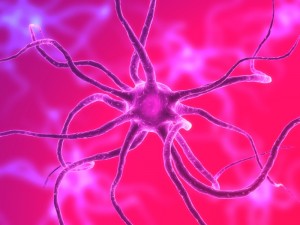
January 27, 2014
A rapid decline in thinking and memory skills often heralds the onset of Alzheimer’s disease, a new study reports. The findings are consistent with earlier findings that Alzheimer’s is often preceded by an accelerated loss of memory as well as other thinking skills like attention, visual and spatial awareness, and judgment, making it difficult for those with the disease to find their way or do things like balance a checkbook.
The study, published in the journal Neurology, from the American Academy of Neurology, found that memory loss and other cognitive problems may decline rapidly in people who have mild cognitive impairment, or MCI, a form of serious memory loss that sometimes precedes the full-fledged dementia of Alzheimer’s. The memory loss is notably more severe than the ordinary mental decline that can accompany aging. Memory problems decline even more rapidly once Alzheimer’s is present.
“These results show that we need to pay attention to this time before Alzheimer’s disease is diagnosed, when people are just starting to have problems forgetting things,” said study author Robert S. Wilson, Ph.D., of Rush University Medical Center in Chicago, one of the study’s authors.
The study, part of the Chicago Health and Aging Project, involved 1,158 seniors living in the community. Their average age was 79. Over all, 149 of the participants had Alzheimer’s disease, 395 had mild cognitive impairment, and 614 had no serious thinking or memory problems.
Tests to measure memory and thinking skills tests were given to all the participants at the start of the study and repeated every three years. People took part in the study for an average of 5.5 years, though some in the study for twice that long.
The thinking skills of those with mild cognitive impairment declined twice as fast each year as those who did not have cognitive problems but may have declined slightly due to normal aging. In those with Alzheimer’s disease, thinking skills declined four times as fast as those with no cognitive problems.
“The changes in rate of decline occur as the brain atrophies due to the disease, first mainly in the hippocampus during the initial symptomatic stage, referred to as mild cognitive impairment, then in the temporal, parietal and frontal cortex during the dementing illness phase of Alzheimer’s disease,” said Dr. David S. Knopman of the Mayo Clinic in Rochester, Minn., who wrote an editorial accompanying the study.
The findings point to new signs that those who have memory and thinking problems need to be assessed regularly by a physician. The findings also point to possible mechanisms by which Alzheimer’s may damage different areas of the brain, causing loss of particular memory and thinking skills in a predictable pattern.
Currently, a diagnosis of Alzheimer’s can only be confirmed by examining the brain on autopsy after death. Earlier diagnosis may allow for earlier treatment of the disease, when medications may be most effective. New drugs on the horizon may delay progression to more serious stages of disease.
By www.ALZinfo.org, The Alzheimer’s Information Site. Reviewed by William J. Netzer, Ph.D., Fisher Center for Alzheimer’s Research Foundation at The Rockefeller University.
Source:
R. S. Wilson, Ph.D., N. T. Aggarwal, M.D., L. L. Branes, Ph.D., et al: “Cognitive Decline in Incident Alzheimer Disease in a Community Population,” Neurology, 2010, Vol. 74, pages 951-955.
David S. Knopman, M.D.: “Mild Cognitive Impairment and on to Dementia: Down the Slipper Slope But Faster,” Neurology, March 23, 2010, pages 942-944.











